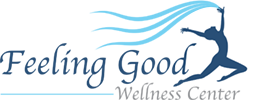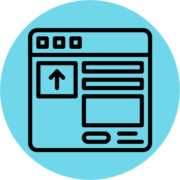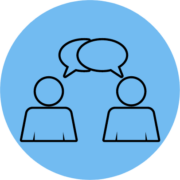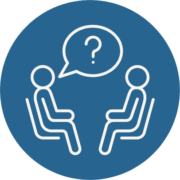My Mission at Feeling Good Wellness Center
I aim to help you recognize your thinking patterns and assumptions and learn state-of-the-art techniques so you can use your thought patterns to improve your mental and physical health.
What you are experiencing is the result of your wonderfully sophisticated brain that can think abstractly.
The mood and anxiety symptoms you face aren’t necessarily mental illnesses. The complexity of how your brain works, thinking in the past, present, and future, integrates with your moral reasoning, your previously learned experiences, and the sensations you feel in your body, affecting how you feel emotionally and physically.
But you have the power within you to face and overcome anxiety, depression, trauma, and more. An experienced guide can help you through proven, evidence-based, goal-oriented, rapid recovery therapy methods.
And that guide is me.
Rapid Recovery Therapy Services
As a specialized clinical psychologist, I use research-based therapy approaches to get you to your therapeutic goals as quickly as possible. Unlike traditional “talk therapy,” which focuses on you talking about your concerns, I roll up my sleeves and get to work treating them with you.
You want to feel better sooner rather than later. I get it. That’s why I use proven techniques like TEAM CBT, integrated with Exposure Response Prevention (ERP) and Acceptance and Commitment Therapy (ACT), to get you there fast.
My areas of specialty for rapid recovery online therapy in Ontario and California include:
Request a free consultation
and find out if I’m a good match
Women’s Health Therapy
As a woman, you deal with several mental and physical obstacles. From health conditions like perimenopause, menopause, postpartum depression, and physical body changes that seem to happen overnight, it can be quite a challenge.
Not to mention relationship conflicts, domestic abuse, overwhelming family responsibilities, complications associated with divorce and remarriage, race and ethnicity-related issues, and more. It’s no wonder you feel the way you do – tired, overwhelmed, depressed, and anxious.
I empathize with you and am highly trained in these issues and more. With my help, you can become empowered to overcome these obstacles and make the changes you need to make in order to see positive results in your quality of life.
Trauma Therapy
Experiencing trauma is one of the most life-altering events that can happen to you. The unwanted memories, unexpected triggers, and emotions you face daily negatively impact your mental and physical well-being.
I understand you feel imprisoned by your past trauma. I also understand it’s challenging to figure out how to escape how it affects your life in the present. It’s nearly impossible to effectively work through your issues related to trauma on your own.
And you don’t have to. I’m here to compassionately guide you through working through your trauma using evidence-based therapy methods like TEAM CBT, ERP, and ACT approaches.
My rapid recovery therapy approach will help you gain a deeper understanding of how your trauma affects your life, develop healthy coping mechanisms, and have you feeling safe once again.
Divorce Therapy
If you’re thinking about parting ways with your spouse and want to divorce gently, with as little pain and damage as possible to you and your family, I’ve got you. While I don’t offer “marriage counseling,” I do help couples contemplating divorce and wanting to end their partnered relationship peacefully.
The divorce process doesn’t have to be volatile. Through our online divorce therapy sessions in California or Ontario, I’ll help you find the solace and relief you’re looking for and get you to a peaceful resolution.
What Makes My Therapy Approach Different
When you partner with me for online therapy in Ontario or California, you can expect results as quickly as possible. You want to resolve the issues in your life fast.
I want that too.
That’s why therapy with me is goal-oriented, straightforward, honest, and compassionate to your individual needs. I am committed to helping you achieve your therapeutic goals. I’m also committed to becoming your ally, someone you can trust and count on for life.
I base my therapeutic approach on Cognitive Behavioral Therapy (CBT) and utilize the proven TEAM-CBT method to reach your goals quickly. This approach includes six-week intensive therapy sessions, assigned homework, empathetic listening, and measured success at each and every session.
Together, we’ll look at the functionality of your thoughts and decide which ones are worth keeping, which ones to toss, and which should be modified and maintained. We’ll measure this by evaluating the emotional impact, psychological well-being, and physical impact of your thoughts or personal beliefs.
Feel Better Faster. Get Started Today.
You don’t have to live a life troubled by depression, anxiety, OCD, PTSD, or any other mental health concern. If you’re ready to make your life the best it can be, contact me for online therapy in California and Ontario. There’s no better time to take action on improving your mental and physical health than the present.
1
Fill Out Form
To begin your journey to wellness with me, fill out the brief form on my contact page and schedule a free 15-minute phone consultation to discuss your concerns.
2
Intake Session
Attend your intake appointment with me via Zoom. If we’re a good fit, we’ll schedule your first six weeks of TEAM CBT Therapy.
3
Begin Treatment
Meet with me for evidence-based therapy sessions once per week for six weeks. If you need more time with me, we’ll schedule more.



